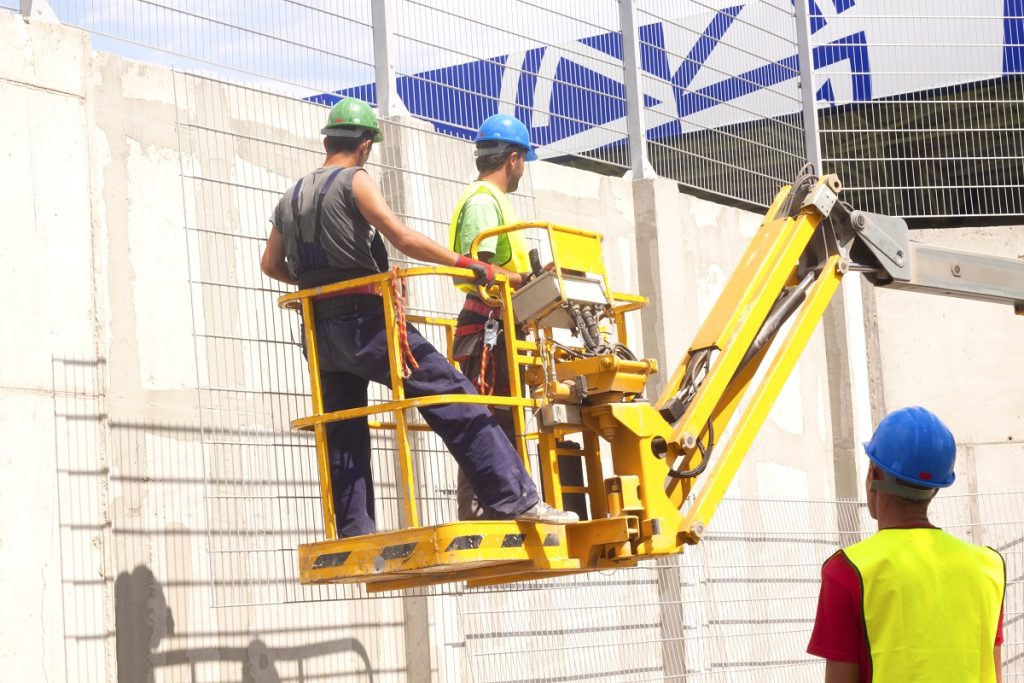- Understand the construction market and local competition before starting a construction business.
- Create a detailed business plan to serve as a guide and attract potential investors.
- Secure licenses, permits, and insurance to operate legally.
- Invest in quality equipment and skilled workers for efficient workflow and productivity.
- Work with a lawyer specializing in construction law to avoid legal pitfalls.
The construction industry is a major economic driver, presenting ample opportunities for entrepreneurs. Starting a construction company can be rewarding but comes with its share of challenges. Adequate preparation, strategic planning, and a keen understanding of the industry are crucial. Here are five tips to effectively kickstart your construction business.
1. Understand the Market
Comprehending your market is a vital initial step in establishing your construction company.
Commence with a thorough research of your local market. Identify the types of construction projects that are in demand. Are they residential, commercial, or infrastructure projects? This can help you decide on the specialization for your company.
Investigate your potential customers and competition. Who are the key players? What services do they offer, and how can you differentiate your business? Insights from this research will guide your business planning and decision-making process.
Finally, assess the labor market in your area. Is there a shortage of skilled workers? Are there any unions or associations that construction companies commonly utilize? Knowing this information ahead of time can help you plan for the challenges and opportunities ahead.
2. Create a Detailed Business Plan

A detailed business plan is a blueprint for your construction company.
Your plan should include an executive summary, company description, market analysis, organizational structure, description of services, marketing and sales strategy, and financial projections. It helps to outline your business goals and strategies, making them more tangible.
This plan is a guide for you and a tool to attract potential investors or secure financing. Review and update your business plan regularly as your business evolves.
3. Secure Licenses, Permits, and Insurance
Securing the necessary licenses and permits is essential for operating a legitimate construction business.
Construction businesses typically require various licenses and permits, both at the federal and state level. These might include a general contractor’s license, zoning and land use permits, and health and safety permits.
Insurance is another critical component. It safeguards your business from potential risks such as property damage, accidents, or lawsuits. Common types of insurance for construction companies include general liability, workers’ compensation, and commercial auto insurance.
4. Invest in Quality Equipment and Skilled Workers
The right equipment and skilled workers are the backbone of your construction company.
Invest in quality equipment that is durable and efficient. You might purchase, lease, or rent your equipment depending on your budget and needs.
Hiring skilled workers is equally crucial. Your workforce should possess the necessary skills and experience and align with your company’s values and culture. Providing ongoing training and promoting a safe work environment can help retain your staff and enhance productivity.
Here are some equipment you may need for your construction company
Excavators

Excavators are versatile equipment, often used for digging trenches, foundations, or holes. They come in different sizes, with larger variants used for heavy-duty operations, while the compact ones come in handy for smaller projects. Investing in high-quality excavators ensures efficient site preparation, potentially reducing the time and cost of projects.
Loaders
Loaders are essential for moving and loading soil, gravel, and debris. They contribute significantly to maintaining clean and safe job sites. Opting for reliable, efficient loaders can improve workflow and augment productivity, essential components for a profitable construction business.
Skilled Machine Operators
Machine operators are the lifeblood of any construction company. They handle the equipment, affecting the project’s efficiency and safety. It’s essential to recruit operators with the right skill set and experience. Regular training and skill development programs can enhance their proficiency and adaptability to new machinery.
Safety Officers
Safety officers are critical in enforcing safety regulations and ensuring a hazard-free work environment. They are responsible for identifying potential risks, conducting safety training, and implementing preventive measures. Investing in skilled safety officers can minimize accidents and improve overall productivity in skilled safety officers.
5. Work with a Lawyer Specializing in Construction Law
Legal assistance is invaluable when starting a construction company. Consider working with a lawyer who specializes in construction law.
A construction lawyer can help you with contract drafting and negotiation, ensuring you’re adequately protected in your business dealings. They can guide you through complex construction project regulations, helping you avoid potential legal pitfalls.
A construction lawyer can also represent you if disputes or legal issues arise. Whether it’s a disagreement with a client, supplier, or employee, a construction lawyer can provide professional advice and representation, helping you navigate the legal landscape effectively.
In Closing
Starting a construction company involves diligent planning and decision-making. By understanding your market, creating a detailed business plan, securing necessary licenses, permits and insurance, investing in quality equipment and skilled workers, and working with a specialized construction lawyer, you can lay a strong foundation for a successful construction business.

